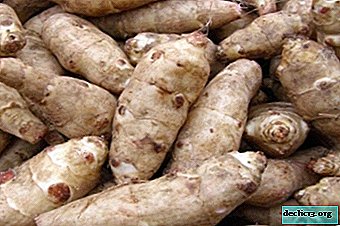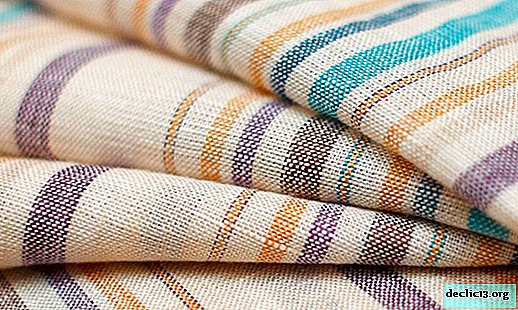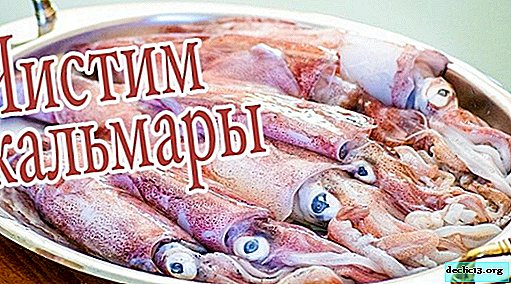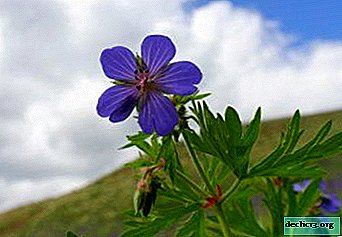Useful Jerusalem artichoke: is it possible to give it to rabbits, hens and other animals?

Root crop earthen pear is very valuable in animal husbandry. Both green tops and juicy underground parts are used. Nutrition exceeds beetroot.
Jerusalem artichokes feed rabbits, goats, sheep and other cattle. The upper part is converted into a silo and harvested for future use.
Harvest the green part twice a season. Such food in its characteristics has almost universal properties.
Can animals be given?
The culture is successfully used as food for various animals.. Green mass has a nutritional value of up to 25 feed units per 100 kg. Moreover, you can make blanks in the form of grass meal, silage from stems and leaves.
Reference! Milkiness increases in sows, milk yield in cows. Moreover, the fat content of milk increases.Comparative cheapness is also noted, since the culture is subject to planting on soils unsuitable for other plants. And tubers can be stored in the ground until spring.
What part of the plant to feed?
 The main value of an earthen pear is that both the ground mass and the root crop go for food by animals. No less nutritious silage is prepared from the fresh green part, it is dried. Therefore, in the summer season, pets will eat a fresh plant with pleasure, and in the autumn-winter - harvesting.
The main value of an earthen pear is that both the ground mass and the root crop go for food by animals. No less nutritious silage is prepared from the fresh green part, it is dried. Therefore, in the summer season, pets will eat a fresh plant with pleasure, and in the autumn-winter - harvesting.
Tubers are juicier, contain from 16 to 20% sugar, which is quite a lot. They have:
- protein from 0.1 to 0.5%;
- inulin from 2 to 5%;
- fat from 1.4 to 1.8%;
- minerals: phosphorus, iron.
One of the preparations is fodder yeast.
Dietary use
This is an early ripe food, in which he has no equal. In France, Jerusalem artichoke tubers are eaten along with potatoes even by people. Therefore, there is no reason to fear for the safety of animals when it is eaten. With the help of Jerusalem artichoke, the milk yield of cattle is increased. It is an effective and high-energy feed that provides a balanced diet. In particular, the cost of milk is reduced.
Chickens
 The bird eats the top of Jerusalem artichoke in the summer and dried culture in the winter. Hens are earlier and more productive, 10 or 15% more intensively rush. Taste quality of the egg improves. Natural inulin strengthens the immune system, the bird does not need an antibiotic. The mass gain is obtained up to 12%. Vitamin grass meal, as a preparation for the winter, contains a rich and valuable composition. And also surpasses other plants in amino acids.
The bird eats the top of Jerusalem artichoke in the summer and dried culture in the winter. Hens are earlier and more productive, 10 or 15% more intensively rush. Taste quality of the egg improves. Natural inulin strengthens the immune system, the bird does not need an antibiotic. The mass gain is obtained up to 12%. Vitamin grass meal, as a preparation for the winter, contains a rich and valuable composition. And also surpasses other plants in amino acids.
Rabbits
 Rabbits love the green mass. Stems and leaves are used. Since Jerusalem artichoke tops can be dried, it is also used in winter.. Moreover, the workpieces are superior in nutrition and chemical composition to those obtained from other plants. The green mass of the leaves exceeds the stems in dry matter by 3.2 times, and in feed units - by 2.4.
Rabbits love the green mass. Stems and leaves are used. Since Jerusalem artichoke tops can be dried, it is also used in winter.. Moreover, the workpieces are superior in nutrition and chemical composition to those obtained from other plants. The green mass of the leaves exceeds the stems in dry matter by 3.2 times, and in feed units - by 2.4.
They also have more carotene, nitrogenous substances: proteins, amides. But the stems contain 85% of the easily hydrolyzable polysaccharides. All this improves the quality of rabbit meat, ensures the health and weight gain of young animals by 8 or 15%.
Goats
 Jerusalem artichoke increases milk yield not only in cows, but also in goats. Its quality is increasing. Both tubers and greens include a valuable mineral composition. This has a positive effect on the physiology of animals. And also on milk production.
Jerusalem artichoke increases milk yield not only in cows, but also in goats. Its quality is increasing. Both tubers and greens include a valuable mineral composition. This has a positive effect on the physiology of animals. And also on milk production.
Milking goats get proteins, essential amino acids. The latter are contained in greenery and silo. Fatty acids, of which there are many in the green mass, affect the metabolism. This is a synthesis of milk fat, sugar and protein. Milking rises by 12%, and weight gain is also observed.
Sheeps
 The content of sheep when feeding Jerusalem artichoke improves their physiology. This means that meat and wool will have excellent quality. These animals eat greens, root crops and tops from tops. The food value of Jerusalem artichoke is undeniable, and it will not cause harm. In addition, it is just an additive that is not able to disrupt the blood sugar level in quantity.
The content of sheep when feeding Jerusalem artichoke improves their physiology. This means that meat and wool will have excellent quality. These animals eat greens, root crops and tops from tops. The food value of Jerusalem artichoke is undeniable, and it will not cause harm. In addition, it is just an additive that is not able to disrupt the blood sugar level in quantity.
Pigs
 Jerusalem artichoke is a very valuable feed for this type of animal. This is favored by the composition of the product. Mostly tubers are used.
Jerusalem artichoke is a very valuable feed for this type of animal. This is favored by the composition of the product. Mostly tubers are used.
Pigs are also grazed in fields with Jerusalem artichoke for them to eat green mass. The animal receives a gain of up to 18%.
Hamsters
 Hamsters can be treated with root crops, useful nutrients. Since Jerusalem artichoke is suitable for human consumption, it can also be given to pets along with potatoes.
Hamsters can be treated with root crops, useful nutrients. Since Jerusalem artichoke is suitable for human consumption, it can also be given to pets along with potatoes.
The consequences of consuming such food
In the 30s they even wanted to grow a crop on an industrial scale. But the tubers extracted from the soil are not subject to long-term storage. This reduces the demand. Compared with potatoes and beets, the harvest does not last until spring, it will be lost. But it can be perfectly preserved in the soil.
In addition to such losses when growing harm from an earthen pear is not observed. Excessive sugar content creates a risk factor for the development of diabetes, but Jerusalem artichoke is only an additive used not in such large doses.The yield of Jerusalem artichoke is up to 300 centners per hectare of tubers and up to 500 grams of greens. The culture is unpretentious to the soil, grows safely on the outskirts and is stored in the ground all winter. This makes it convenient as an additional food for pets, characterized by high nutritional value and sugar content. The problem is only the inability to leave blanks for long-term storage. The plant contains inulin, the use of which eliminates the need for antibiotic supplements.

















